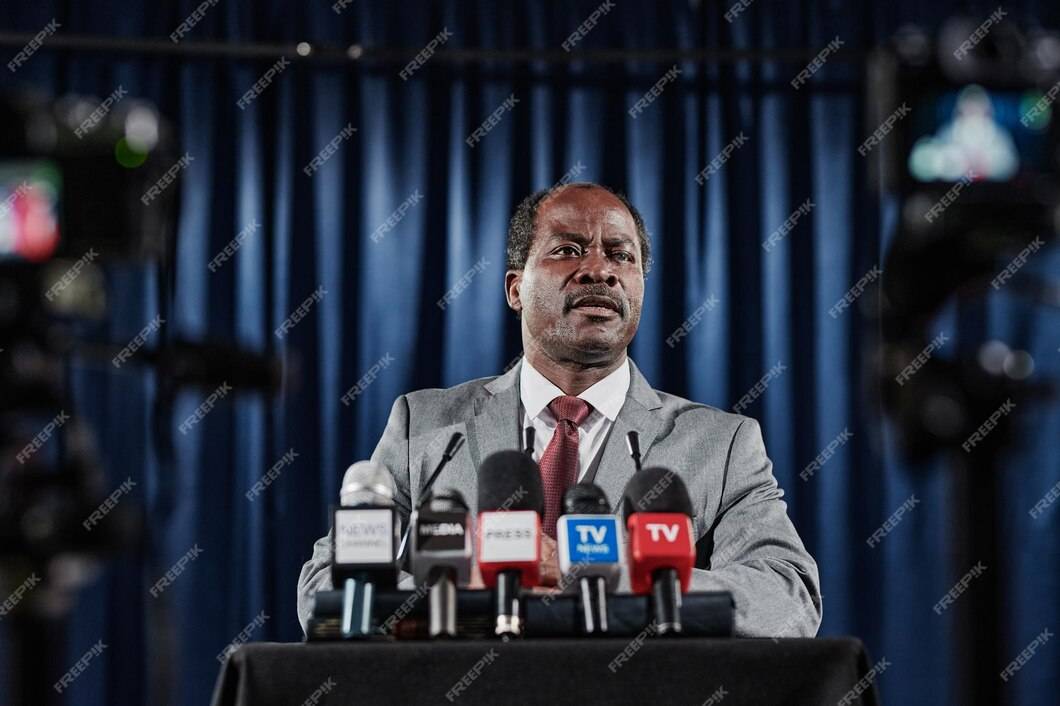With the fast-paced world, the media has become an integral component of political campaigns, especially in the digital age where information is disseminated almost instantaneously. From television to social media platforms, the media serves as the main channel through which candidates communicate with voters, share their policies, and, crucially, attempt to influence public opinion. But as much as the media serves as a tool for spreading a candidate's message, its influence raises important questions: Is the media simply an influencer, amplifying political discourse, or is it a manipulative force, shaping perceptions, distorting facts, and swaying voters in ways that may not always align with democratic principles?
In this blog post, we will examine the dual role of the media in contemporary political campaigns—both as a tool of influence and, at times, as an agent of manipulation. We will explore how the media interacts with political campaigns, the ethical challenges posed by this dynamic, and the implications for voters in the digital age. Ultimately, we aim to answer the question: Is the media’s role in political campaigns an exercise in influence, or does it cross into manipulation?
The Media as a Powerful Influence in Political Campaigns
At its core, the media is an essential player in shaping political discourse. It provides the platform where political candidates can present their messages, interact with the public, and solidify their positions on key issues. In contemporary politics, particularly in democracies, the media plays an undeniable role in influencing the electorate, often determining the outcome of elections.
Agenda Setting: The Media’s Power to Shape Issues
One of the most significant ways in which the media influences political campaigns is through the process of "agenda-setting." This refers to the media’s ability to highlight specific issues, thereby making them more prominent in the public's mind. The media doesn’t necessarily tell people what to think, but it certainly influences what they think about. This power is particularly evident during election seasons, when the media often decides which topics will dominate political discourse.
For example, in the lead-up to elections, media outlets can decide to emphasize issues such as healthcare, immigration, or climate change, depending on the interests and ideologies of their audiences. By doing so, they influence not only the way candidates address these issues but also how voters perceive them. If the media gives more coverage to a particular topic, it signals to the public that this issue matters, pushing political candidates to address it in their campaigns.
Moreover, candidates and political parties often tailor their messages to align with the issues the media is prioritizing. If a candidate can successfully align themselves with a media-driven agenda, they may be able to generate more favorable coverage, attracting more voters.
Voter Education and Engagement
In a healthy democracy, the media plays an essential role in educating voters. Political campaigns rely on media outlets to disseminate information about candidates' positions on important issues, their policy proposals, and their past records. Voters often turn to news sources, debates, and political analysis to inform their decisions at the polls.
Additionally, the media facilitates voter engagement by broadcasting debates, interviews, and speeches, all of which provide voters with direct access to the candidates and their messages. During elections, media platforms also provide essential information on voting procedures, polling station locations, and election dates, helping ensure that citizens are able to participate fully in the democratic process.
However, the effectiveness of this role is often debated. While the media is supposed to present information in an objective and factual manner, there are concerns about whether it can remain impartial. In many cases, media outlets—whether they be traditional news channels, digital publications, or social media platforms—have their own political leanings, which may color the way they cover political candidates and events.
Manipulation: The Dark Side of Media Influence
While the media can certainly serve as a force for good by educating voters and encouraging informed decision-making, it can also be wielded as a tool for manipulation. Political campaigns, aware of the media’s power, often seek to control the narrative and shape public perceptions to their advantage. This manipulation can take many forms, from biased reporting to misleading advertisements and even the use of social media bots.
Fake News and Misinformation
One of the most glaring examples of media manipulation in contemporary political campaigns is the spread of fake news and misinformation. In the age of social media, where news is consumed in real-time, false information can spread faster than ever before, and political campaigns have exploited this dynamic for strategic gain.
Political operatives may plant false stories or misleading headlines, often through social media platforms, to undermine their opponents. The aim is not only to confuse the electorate but also to sow discord and distrust in the political process. Fake news can present itself as legitimate reporting, making it more challenging for voters to distinguish fact from fiction. For instance, during the 2016 U.S. presidential election, there was widespread reporting of fake stories designed to sway voters toward one candidate or another. These stories were often shared millions of times, reaching large numbers of people before they could be debunked.
The rise of “deepfakes,†videos or images that manipulate reality using artificial intelligence, further complicates this issue. These manipulated videos can show candidates making statements they never made or engaging in actions they never performed, all designed to deceive voters and distort the truth.
Biased Reporting and Selective Coverage
Another way the media can manipulate political campaigns is through biased reporting and selective coverage. Some news outlets have a clear ideological bias, whether left-wing or right-wing, and they may present the news in a way that favors one side while downplaying or ignoring opposing viewpoints. This can create a skewed perception of candidates or issues, shaping voters' decisions based on partial or distorted information.
For example, during elections, political candidates often receive varying amounts of media coverage depending on their political affiliation and the media outlet’s agenda. A candidate whose policies align with the editorial stance of a particular news outlet might receive favorable coverage, while an opponent may be vilified or ignored entirely. This unequal treatment can have a significant impact on the way the public views the candidates and their platforms.
Additionally, media outlets often prioritize sensationalism over substance, choosing to report on controversies, scandals, or soundbites rather than on the substantive policies being proposed by candidates. This focus on sensational topics can lead to a distorted image of the candidate and detracts from important policy debates.
Targeted Political Ads and Micro-Targeting
With the rise of digital advertising, campaigns now have access to an unprecedented level of voter data. Through social media platforms, political campaigns can track voters' online activity, preferences, and behaviors to deliver highly-targeted advertisements designed to sway them toward a particular candidate or cause. This practice, known as micro-targeting, is often used to exploit individuals’ fears, anxieties, and biases.
While targeted ads can be used to inform voters about a candidate’s policies, they can also be used to manipulate them. For example, campaigns may use emotionally charged content to provoke fear or anger about an issue, thereby motivating people to vote based on emotions rather than facts. Targeted ads may present highly exaggerated or misleading information, playing on stereotypes or prejudices to paint a candidate in an unflattering light.
The Cambridge Analytica scandal, where a political consulting firm gained access to personal data from millions of Facebook users to target them with political advertisements, is a stark example of how data can be used to manipulate the electorate.
Ethical Challenges and the Quest for Accountability
The convergence of media and politics has raised important ethical questions about accountability. How can we ensure that the media is serving the public interest rather than merely advancing the interests of political campaigns and their sponsors? How can voters differentiate between legitimate information and manipulative tactics?
One solution to these challenges lies in media literacy. Voters need to be equipped with the skills to critically assess the information they encounter, particularly on social media. Fact-checking organizations, independent journalism, and watchdog groups also play an important role in holding both the media and political campaigns accountable for spreading false or misleading information.
Moreover, media organizations themselves have a responsibility to uphold high standards of journalism. They should strive for impartiality, provide balanced coverage, and avoid sensationalizing or distorting the facts. Given the immense power the media holds in shaping political outcomes, ethical reporting is critical to preserving the integrity of the political process.
Conclusion: A Double-Edged Sword
The media’s role in contemporary political campaigns is undoubtedly complex. It serves as both an influential force, educating voters and facilitating political discourse, and a potentially manipulative tool, capable of distorting facts and swaying public opinion through misinformation, biased coverage, and targeted ads. As technology continues to evolve and the media landscape becomes increasingly fragmented, the potential for manipulation grows, making it ever more important for both media outlets and voters to be vigilant.
In the end, whether the media’s role in politics is seen as manipulation or influence largely depends on the ethical practices of the media and the political campaigns that engage with it. Voters must learn to navigate this landscape with a critical eye, demanding transparency, accountability, and factual reporting. Only then can we ensure that the media serves its intended purpose of informing and engaging the electorate, rather than misleading or manipulating them.




No comments yet
Be the first to share your thoughts!